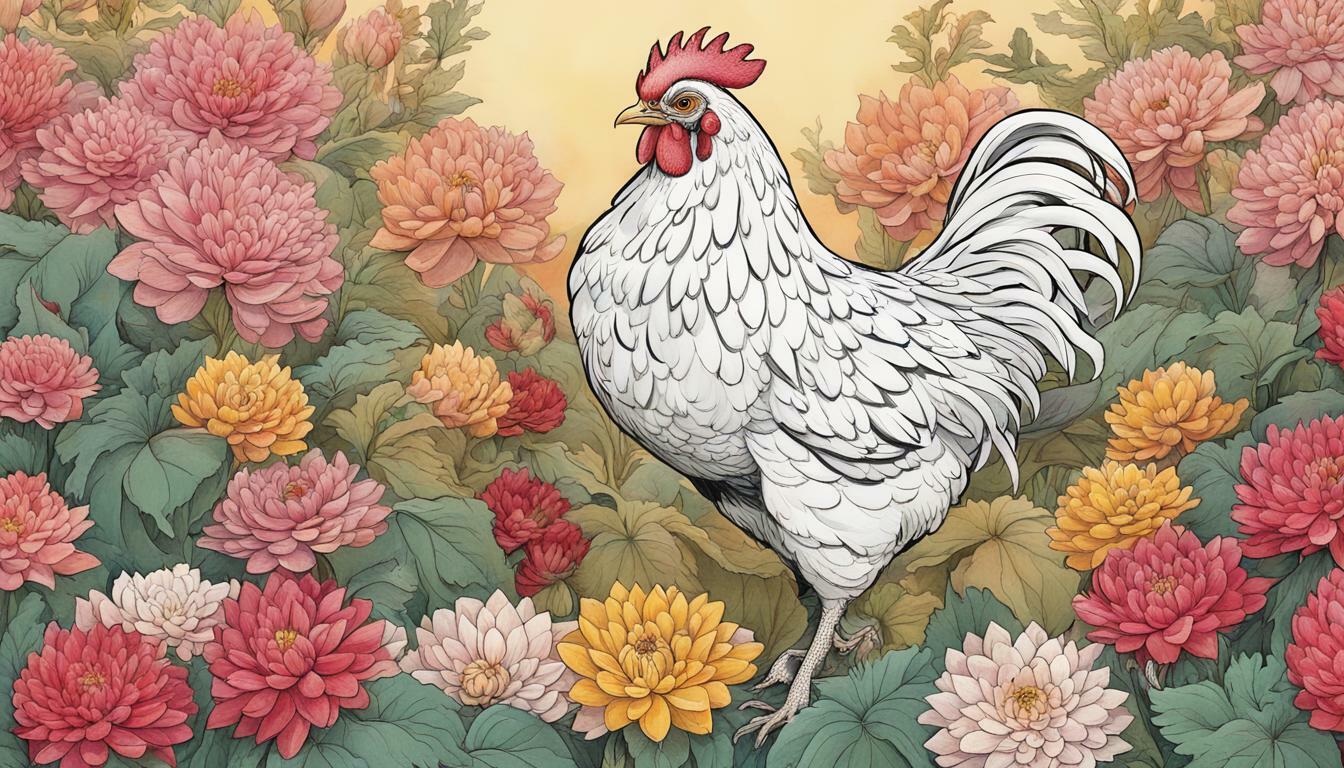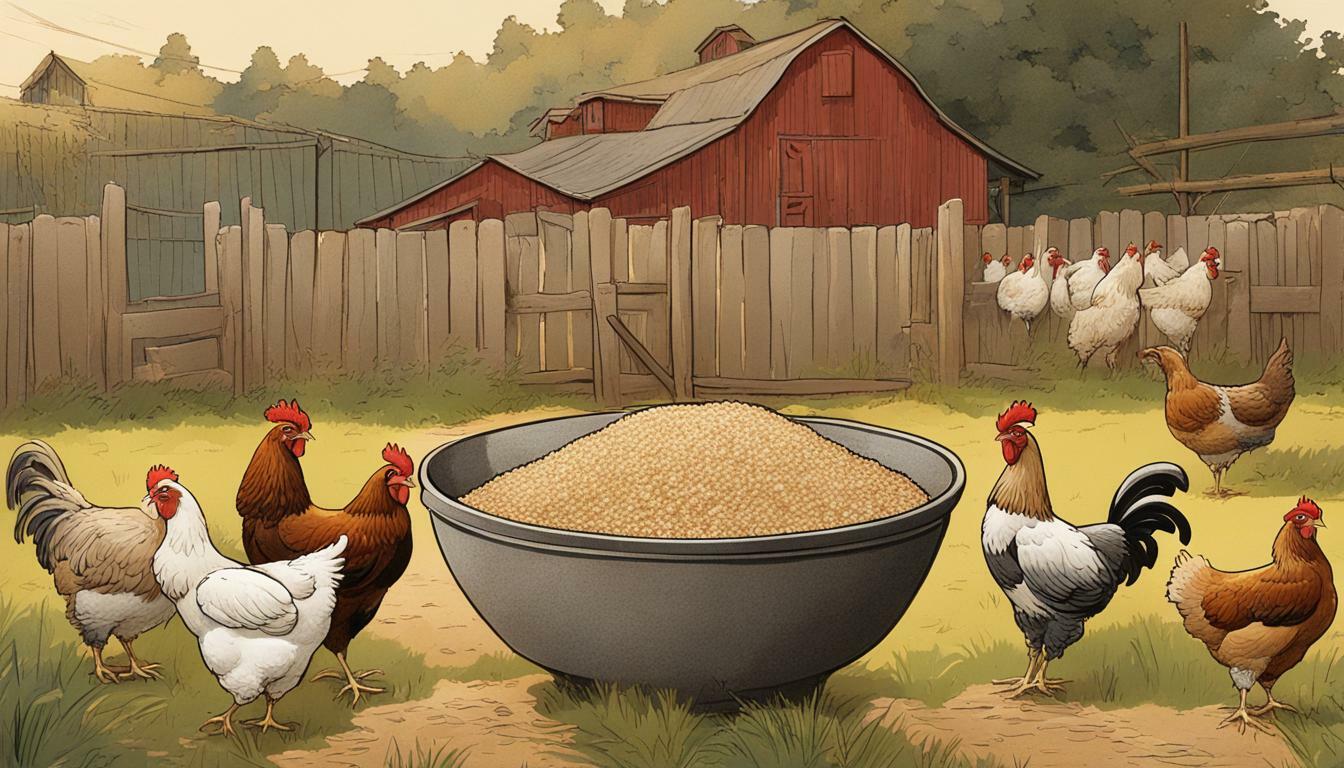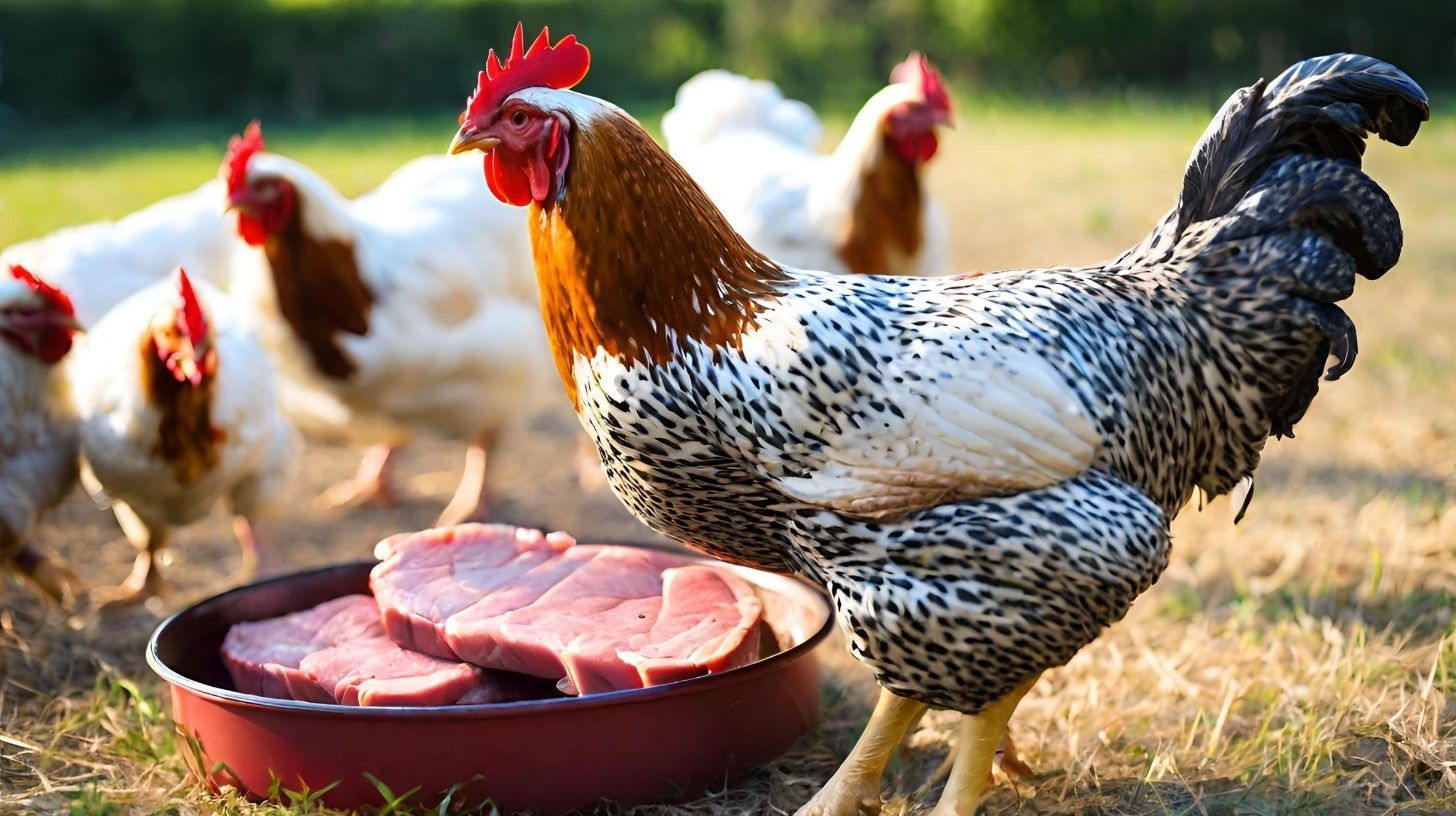Can Chickens Eat Granola? Exploring Safe Treats for Your Flock

Table of content:
Granola is a popular breakfast food and snack made from rolled oats, nuts, dried fruit, and sweeteners like honey or maple syrup. It’s tasty and shelf-stable – perfect for munching on the go. But is granola’s blend of whole grains, healthy fats, and natural sugars also good to share with your backyard flock of chickens? Let’s take a closer look at what granola is, its nutritional value, and whether it’s safe and healthy for chickens to eat.
What is Granola?
Granola is made from a mixture of whole rolled oats, nuts, seeds, and dried fruit that is baked until crisp, and then combined with a sweet binder like honey, maple syrup, or molasses. For some granola varieties add puffed rice, coconut flakes, chocolate chips, or other mix-ins. The oats and nuts make granola crunchy with a toasted, nutty flavor. Dried fruits like raisins, cranberries, apricots, or banana chips lend natural sweetness.
Granola can be homemade or store-bought. Packaged granolas may contain added sugars, oils, and preservatives. Check the ingredients list for the most natural, wholesome options. Look for granola made with 100% whole rolled oats, healthy fats like coconut or olive oil, and minimal added sugars.
Is Granola Healthy for Chickens?
Granola can be a healthy, natural supplement to a chicken’s diet in moderation. Here’s a breakdown of its nutritional value for chickens:
Whole Grains
The oats in granola provide chickens with complex carbohydrates for energy. Whole grains like oats also contain B vitamins, iron, and fiber. Fiber supports healthy digestion, which is very important for chickens. Make sure the oats are whole rolled oats, not quick oats which lack the fiber and nutrients of whole oats.
Healthy Fats
Nuts and seeds in granola offer essential fatty acids that promote skin and feather health in chickens. Walnuts, almonds, cashews, pecans, pumpkin seeds, and sunflower seeds are excellent options. Coconut oil or flakes also supply beneficial fats.
Fruits and Vegetables
Dried fruits like raisins, cranberries, cherries, blueberries, and apricots provide antioxidants, vitamins, and natural sugars. Dried apple, carrot, and pumpkin pieces also add wholesome fruit and veggie nutrition.
Protein
While granola is not a significant source of protein, nuts and seeds do contribute some plant-based protein for chickens. Make sure they have access to higher protein feed as their primary food.
Flavor and Texture
Chickens enjoy the crunchy texture of granola, and the sweet fruity flavors make it a tasty treat. The variety of nuts, fruits, and seeds also makes it more interesting than plain grain.
So in moderation, granola can provide chickens with many beneficial nutrients. But there are also some potential downsides to consider before offering granola.
Are There Any Concerns with Feeding Chickens Granola?
While healthy granola blends can be nutritiously fed in moderation, here are a few potential issues to keep in mind:
- Sugar content – Store-bought granola can sometimes contain lots of added sugars, like corn syrup, brown sugar, or even chocolate chips. Too much sugar is unhealthy for chickens. Read labels and choose low-sugar varieties or make your own homemade granola.
- Fat content – Some granola recipes include fatty ingredients like coconut or vegetable oil. While healthy fats are beneficial, too much fat could lead to obesity and other issues in chickens. Stick to nuts and seeds for healthy fats.
- Cholesterol – Chickens naturally produce their own cholesterol for metabolism and egg production. Feeding chickens high dietary cholesterol from ingredients like coconut could be problematic. But this is unlikely to be an issue in the small amounts of coconut found in most granola.
- Allergens – Chickens can have allergic reactions to certain foods just like humans. Tree nuts and coconut are potential allergens to be aware of. Introduce new foods slowly and watch for any signs of reaction.
- Digestibility – The whole oats and nuts make granola quite dense and crunchy. Older chickens with weaker digestion may have trouble breaking down and absorbing the nutrients. Soak or sprout the oats and nuts before feeding or avoid giving them to elderly chickens.
- Boredom – Chickens love novel foods and treats. But switching up their diet too much can lead them to get bored of their regular feed. Make granola an occasional treat, not a daily feed addition.
With a little care in preparation and portion size, most healthy chickens should be able to enjoy granola without issue.
How Should You Feed Granola to Chickens?
Here are some tips for safely incorporating granola into your flock’s diet:
- Choose high-quality granola – Select a product with whole rolled oats, nuts/seeds, and minimal added sugar. Or make homemade granola so you control the ingredients.
- Portion size – Granola should be fed in limited amounts as a supplemental treat, not a dietary staple. Offer small handfuls, about 1-2 tablespoons per chicken.
- Frequency – Feed granola only 2-3 times per week, not every day. Variety is good but their main diet should still be pellets and grains.
- Mix it up – Combine the granola with their regular feed to encourage eating it all. Scatter some in their scratch area for pecking and foraging.
- Water access – Provide plenty of fresh water to aid digestion of the dense, dry granola.
- Age appropriate – Granola may be better suited for younger chickens. Older birds with compromised digestion should avoid it.
- Monitor reactions – Watch for any signs of allergic reaction when introducing granola or a new granola brand.
- Storage – Keep any uneaten granola in a sealed container away from moisture and pests. Discard if it smells rancid or moldy.
With a measured, mindful approach, granola can be a safe, nutritious periodic treat for most chickens as part of a balanced diet.
Healthy Homemade Granola Recipe for Chickens
Want to whip up a batch of chicken-friendly granola? Here is a simple recipe to try:
Ingredients:
- 3 cups whole rolled oats
- 1 cup raw pumpkin seeds
- 1/2 cup chopped raw walnuts
- 1/2 cup shredded unsweetened coconut
- 1/4 cup milled flaxseed
- 1/4 cup raisins or dried cranberries
- 2 tablespoons coconut oil (melted)
- 1/4 cup pure maple syrup
- 1 teaspoon cinnamon
- 1/2 teaspoon vanilla extract
Instructions:
- Preheat oven to 300°F and line a rimmed baking sheet with parchment.
- In a large bowl, combine the oats, seeds, nuts, coconut, and flaxseed.
- In a small bowl, whisk together the coconut oil, maple syrup, cinnamon, and vanilla.
- Pour the wet ingredients over the dry and mix well to coat evenly.
- Spread the granola on the baking sheet in a thin layer.
- Bake for 30 minutes, stirring every 10 minutes, until golden brown.
- Remove from oven and mix in dried fruit.
- Let cool completely before storing in an airtight container.
This makes about 6 cups of homemade granola – plenty to share with your chickens! Portion it out into snack-sized bags to grab and go when it’s time to treat the flock.
Final Thoughts on Can Chickens Eat Granola?
Granola can be a tasty, nutritious supplementary food for backyard chickens in moderation. Focus on high-quality recipes with whole grains, nuts/seeds, dried fruits, and minimal added sugars or oils. Prepare and portion it carefully for the health and digestion needs of your specific flock. Given occasionally as a treat, most chickens will appreciate the crunchy texture, fun flavors, and nutrition boost granola provides. With a diversity of whole foods included, it makes for a well-rounded supplement to their regular feed and favorites like scratch. But be sure they still have unlimited access to layer feed and fresh water as the foundation of a balanced diet. By thoughtfully incorporating granola alongside their other feeds, you can give your chickens something special to cluck about!
Welcome. I’m Adreena Shanum, the proud owner of this website, and I am incredibly passionate about animals, especially poultry. I founded adreenapets.com as a labor of love, stemming from my desire to share my knowledge and experiences with poultry enthusiasts worldwide.




